Sigma Xi Distinguished Lecturers, 2004-2005
Abstracts
Each lecturer has designated his or her topic(s) for three different types of audiences. Where more than one level is shown, the lecture can be adjusted to the needs of the audience:
- P (Public)
Aimed at presenting scientific issues of general concern to a public audience.
- G (General)
Intended for a normal Sigma Xi audience of both scientists and other scholars representing a broad range of disciplines.
- S (Specialized)
Aimed at scientists and students in fields that are closely related to that of the lecturer.
Michael Angelo
Security Manager, Government Engagements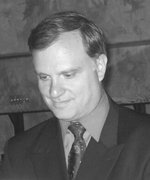
Microsoft Corporation
3303 Amber Forest Drive
Houston, TX 77068
Phone: 425-722-5245
Fax: 425-936-7329
E-mail: mangelo@microsoft.com
- Security vs Privacy (P)
- New Threats for Security in Large Scale Systems (G)
- Access Authentication Technologies—Technology Issues and Concerns (S)
Michael Angelo has almost thirty years in the computer industry with over twenty years experience in designing, implementing, managing, and supporting secure intra/inter-nets. He is currently responsible for government computer security resolution at Microsoft. Included in his responsibilities are cross co-ordination of security certifications, evolution of crypto-agnostic methods, and secure messaging. Mr. Angelo has previously held the title of Staff Fellow at both Hewlett Packard and Compaq, where he was a subject matter expert (SME) for security and its associated technologies. His previous responsibilities include providing technical guidance in the development of industry standard secure solutions and technical assistance to the corporate IS and Legal security teams. This work included specification of, and enhancements to, access authentication technology (tokens, smart cards, and numerous biometric devices), high performance encryption, i*net, and numerous other areas of security. Mr. Angelo is very active in the security community with participation in numerous international and national advisory councils. He was the chair of the NIST CIS division review team for three years, a technology contributor to the US BIS ISTAC, and a participant in the National Research Council's committee on Privacy and Authentication. Mr. Angelo has also presented at numerous International and National Security Industry forums on Biometrics and Authentication. Mr. Angelo currently holds 39 patents, most in the area of security and authentication, and was also the 2003 Inventor of the Year for the City of Houston.
Alicia Clay
National Institute of Standards and Technology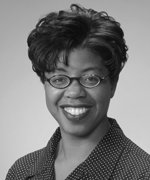
100 Bureau Drive
Mail Stop 8930
Gaithersburg, MD 20899
Phone: 301-975-3641
E-mail: alicia.clay@nist.gov
- Information Security and the Small Business Owner (P)
- International Standards on Information Security Management (G)
- NIST Guidelines on Information Security Management (G)
Alicia Clay, Ph.D. is deputy division chief for the Computer Security Division of the National Institute of Standards and Technology (NIST). She supports division outreach, various aspects of division management, and the assessment of the effectiveness of the division’s research and technical programs. Alicia is also on the U.S. delegation to the ISO/IEC subcommittees responsible for developing international standards on information security. As the NIST representative, she works to align standards with NIST guidelines and to coordinate NIST contributions where appropriate. Prior to joining NIST, Alicia worked at DuPont for six years. She joined DuPont as a physicist in 1995. Subsequently, she became Lab Supervisor at DuPont’s Pontchartrain Plant in southern Louisiana, responsible for a crew of 25 and an ISO 9000 certified quality control laboratory. In her last assignment at DuPont, she became a certified Six Sigma Black Belt by improving research productivity in Central Research and Development.
Nicholas K. Coch
Queens College—City University of New York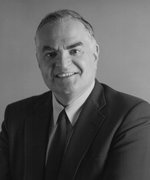
School of Earth and Environmental Science
Flushing, NY 11367
Phone: 718-997-3326
Fax: 718-997-3352
E-mail: ncoch@qcunix1.edu
- Are America’s Beaches All Washed Up? (P)
- Hurricane Hazards in the U.S. (P)
- Hurricane Damage along the (New England, Mid-Atlantic, South Atlantic, Gulf) Coast (G)
- Unique Vulnerability of New york City to Hurricane Destruction (G)
- Forensic Hurricanology and the Reconstruction of Historic Hurricanes (S)
- Dynamics of Hurricane Destruction by Wind, Waves, Surge and Inland Flooding - Facts and Fallacies (S)
Nick Coch received his Ph.D. from Yale University in 1965 and is a professor of geology at Queens College, CUNY. He has published studies in coastal and estuarine geology, and in lunar sedimentation, as a principal investigator in the NASA Lunar Program. He is especially interested in the causes of hurricane destruction and in damage mitigation, and has conducted ground and aerial studies of a number of major recent hurricanes. He is an expert on northern hurricanes and is a consultant to the New York City and State Emergency Management organizations as well as the insurance and risk management industry. His “Forensic Hurricanology” studies utilize present research, as well as historical records, to reconstruct the wind fields of the 17th–19th century hurricanes. His last study produced a dynamic computer model of the great 1635 "colonial" hurricane, that nearly wiped out early English settlements in New England.
Billie Collier
University of Tennessee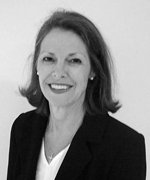
Office Of Research
404 Andy Holt Tower
Knoxville, TN 37996
Phone: 865-974-5224
Fax: 865-974-7076
E-mail: bcollier@utk.edu
- Lyocell—The New "Green" Fiber (P)
- Green Processing of Cellulose to Value-Added Products (G)
- Rheology of Lyocell Solutions Lyocell Solutions from Alternative Cellulose Sources (S)
Billie Collier is a professor of textiles in materials science and engineering, interim associate vice president for research, and director of the Textiles and Nonwovens Development Center (TANDEC) at the University of Tennessee. She has Ph.D. and M.S. degrees in textiles from the University of Tennessee and a B.A. in music from Tulane. She has also taught at LSU, Ohio University, and the University of Georgia, and has published two textbooks, Understanding Textiles and Textile Testing and Analysis, and over 50 articles. In recognition of her research in textile science, she was named a distinguished lecturer by the Fiber Society in 1995 and is the consumer advisor on the Cotton Board. John and Billie Collier are available for joint lectures.
John Collier
University of Tennessee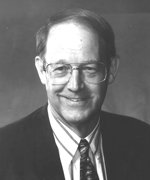
Department of Chemical Engineering
University of Tennessee
419 Dougherty Hall
Knoxville, TN 37996-2200
Phone: 865-974-2421
Fax: 865-974-7076
E-mail: john_collier@chem.engr.utk.edu
- Lyocell—The New "Green" Fiber (P)
- Green Processing of Cellulose to Value-Added Products (G)
- Rheology of Lyocell Solutions Lyocell Solutions from Alternative Cellulose Sources (S)
John Collier is a professor and head of chemical engineering and an adjunct professor in materials science and engineering at the University of Tennessee. His B.S. and M.S. in chemical engineering are from South Dakota School of Mines and Technology and the University of Illinois, and his Ph.D. in polymer engineering and science from Case Western University. He taught at Ohio University for 22 years and also served as associate dean of the graduate college there. He also taught at LSU for 11 years and was chair of chemical engineering. He has published over 100 articles, holds 13 patents (eight jointly with his wife), and is a registered professional engineer and a fellow of the American Institute of Chemical Engineers. John and Billie Collier are available for joint lectures.
Charles H. Dowding
Department of Civil and Environmental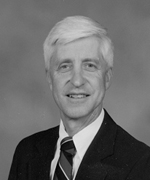 Engineering
Engineering
A122 Technological Institute
2145 Sheridan Road
Northwestern University
Evanston, IL 60208-3109
Phone: 847-491-4338
Fax: 847-491-4011
E-mail: c-dowding@northwestern.edu
Web: http://www.civil.nwu.edu/people/dowding.html
- Carving Crazy Horse: Art and Engineering of Blasting Massive Rock Monuments: (G, P, S)
- Watching Our Infrastructure: Autonomous Surveillance of Critical Facilities and the Internet (G, S)
Charles Dowding is a member of the board of directors of the International Society of Explosive Engineers and founded Digital Vibration Inc., the first company to perfect remote digital blast vibration monitoring in the early 1980s. He has written widely in the field of geotechnical engineering, and is best known for his three books: Construction Vibrations, Blast Vibration Monitoring and Control and GeoMeasurements by Pulsing TDR Cables and Probes. He received his B.S. from the University of Colorado and Ph.D. from the University of Illinois, was a Royal Norwegian Fellow at the Norwegian Geotechnical Institute and taught at the Massachusetts Institute of Technology before joining Northwestern University. He (along with co-authors) received the Applied Research Award from the National Rock Mechanics Committee for work on blast induced cracking of structures. Currently he is developing systems to monitor and display autonomously the status of critical facilities through the Northwestern Infrastructure Technology Institute.
Douglas J. Durian
Department of Physics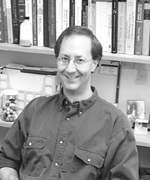
Knudsen Hall 2-240A
University of California, Los Angeles
Los Angeles CA 90095-1547
Phone: 310-206-2645
Fax: 310-206-5668
E-mail: durian@physics.ucla.edu
Web: http://www.physics.ucla.edu/~dws
- The Physics of Foams (G)
- Turning up the Heat on Effective Temperatures (S)
Doug Durian is a professor of physics at the University of California, Los Angeles. His general research interests are in the area of "soft" condensed matter physics: the structure, dynamics and macroscopic behavior of a very broad and general class of materials that are typically noncrystalline and composed of macromolecules such as polymers, liquid crystals, surfactants or biomolecules. This growing field complements solid state and statistical physics, and has considerable overlap with disciplines of chemistry, chemical engineering, materials science and even biology. A common theme in soft condensed matter is that while the materials are disordered at the molecular scale and homogeneous at the macroscopic scale, they usually possess a certain amount of order at an intermediate, or mesoscopic, scale due to a delicate balance of interaction and thermal effects. The general goal is to determine this structure and its dynamics, how it arises and how it influences the macroscopic behavior.
Charles Fenimore
National Institute of Standards and Technology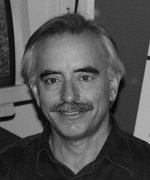
16317 S Westland Drive
Gaithersburg, MD 20877-1511
Phone: 301-869-4207
Fax: 301-975-2428
E-mail: fenimore@nist.gov
Web: http://www.itl.nist.gov/div895/bios/fenimore.html
- Picture Perfect: Motion Imaging and Human Vision in the Age of Electronics (P, G)
- Measuring Picture Quality in High Resolution, High Dynamic Range Imagery (S)
Charles Fenimore leads the Motion Imagery Quality Metrology Project at the National Institute of Standards and Technology. His early work focused on computational fluid mechanics. More recently, he has investigated the quality of motion imagery, work that both derives from and supports the development of new image processing and presentation technology. Fenimore’s work on the measurement of electronic digital imagery has included the development and evaluation of computed quality measures, test methods for subjective evaluation, and the collection of test imagery needed for compression and quality assessment. This work has contributed to the development of measurements and the evaluation of new methods of image compression.
Stephen Fienberg
Carnegie Mellon University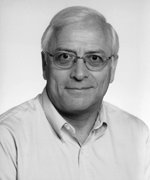
Department of Statistics
Pittsburgh, PA 15213-3890
Phone: 412-268-2723
Fax: 412-268-7828
E-mail: fienberg@stat.cmu.edu
Web: http://lib.stat.cmu.edu/~fienberg/
- In Search of the Magic Lasso: The Truth About the Polygraph (P and G)
- Can We Really Measure Discrimination? (G,S)
- Who Counts? The Science and the Practise of Censustaking in America (P,G)
- Making Statistics Count for Public Policy (G,S)
Stephen E. Fienberg is Maurice Falk University Professor of Statistics and Social Science in the Department of Statistics, the Center for Automated Learning and Discovery, and the Center for Computer and Communications Security, all at Carnegie Mellon University. He has also taught at the University of Chicago, the University of Minnesota and York University. He is a fellow of the American Association for the Advancement of Science, the American Statistical Association, and the Institute of Mathematical Statistics, and an elected member of the National Academy of Sciences. He is well known for his work on the analysis of categorical data, confidentiality and data disclosure, and the application of statistical methodology in a broad spectrum of the sciences.
Alison Galloway
Department of Anthropology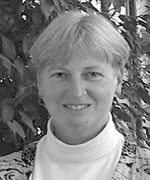
Social Science One Faculty Services
University of California at Santa Cruz
Santa Cruz, CA 95064
Phone: 831-459-3360
E-mail: gallow@cats.ucsc.edu
Web: http://anthro.ucsc.edu/a_galloway.shtml
- The Glamorous World of the Forensic Anthropologist: The True Story (P)
- Forensic Analysis of Skeletal Trauma (G)
- The Legal Responsibilities of Forensic Anthropologists (S)
Alison Galloway is a board-certified forensic anthropologist and professor at the University of California, Santa Cruz. She has over 20 years experience working with medical examiners and coroners in the analysis of human skeletal remains. Forensic anthropologists serve as expert witnesses on the biological profile of the deceased, the trauma to the skeleton and the time since death. Her research focuses on the interpretation of injury patterns to bone, the decay processes in human remains, evidence of life history in the skeleton and the legal role and responsibilities of forensic anthropologists. She is co-editor of The Evolving Female: A Life History Perspective and the author/editor of Broken Bones: Anthropological Analysis of Blunt Force Trauma along with numerous articles.
Roscoe Giles
Department of Electrical and Computer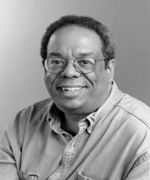 Engineering
Engineering
College of Engineering
Boston University
Boston, MA 02215
Phone: 617-353-9590
E-mail: roscoe@bu.edu
Web: http://roscoe.bu.edu
- Computing Metaphors and "E-Culture" (G)
- Grid Power to the People (G)
- Micromagnetic Simulations: Dynamics and Topology (S)
Upon completing his B.A. in physics at the University of Chicago, Giles went on to earn both his M.S. and doctorate degrees in physics at Stanford University. His expertise and research interests include computational physics, learning technologies, distributed and parallel computing, and computational science. Giles is the team leader for the Education, Outreach and Training Partnership for Advanced Computational Infrastructure (EOT-PACI), deputy director of the Center for Computational Science at Boston University and co-director of the Boston University Mariner Project. He is also the executive director of the new Institute for African-American eCulture (iAAEC) and member-at-large of the executive committee of the Association of Computing Machinery (ACM).
Irwin Goldman
University of Wisconsin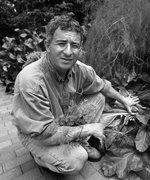
Department of Horticulture
University of Wisconsin-Madison
1575 Linden Drive
Madison, WI 53076
Phone: 608-262-7781
Fax: 608-262-4773
E-mail: ilgoldma@facstaff.wisc.edu
- Why Medicine Needs Agriculture (P)
- Take Two Onions and Call Me in the Morning: The Human Health Potential of Vegetables (G)
- Blood, Sweat, and Tears: Fact and Future of Onion as Human Medicine (S)
Goldman is associate professor of horticulture and chair of the Plant Breeding and Plant Genetics Program at the University of Wisconsin. His research interests include vegetable breeding and genetics, the human health attributes of vegetable crops and the history of plant breeding and genetics. He is associate editor of the Journal of Heredity and on the editorial board ofPlant Breeding Reviews. His many honors include the B.Y. Morrison Medal from the U.S. Department of Agriculture, the Jung Teaching Award from the UW College of Agricultural and Life Sciences and a "Best Paper" award in the education category from the American Society for Horticultural Science. Goldman chairs the USDA Root and Bulb Crop Germplasm Committee and the Vegetable Breeding Working Group of the American Society for Horticultural Science.
Michael E. Gorman
University of Virginia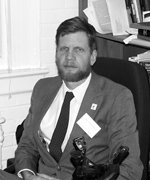
Division of Technology, Culture, and Communication
Thornton Hall, SEAS
Charlottesville, VA 22903
Phone: 804-982-2905
Fax: 804-924-4306
E-mail: meg3c@virginia.edu
Web: http://www.tcc.virginia.edu
- Technology for a Better Tomorrow (P)
- Invention, Discovery and Moral Imagination (G)
- Types of Knowledge and Their Roles in Education and Intellectual Property (S)
Gorman is professor and chair of the Division of Technology, Culture, and Communication at the University of Virginia. His books include Transforming Nature: Ethics, Invention and Design and Simulating Science: Heuristics and Mental Models in Technoscientific Thinking. He is a former Governing Council member of the Society for the Social Studies of Science and is active in a number of professional organizations, including the American Society for Engineering Education, the Association for Practical and Professional Ethics and the Behavioral and Brain Sciences Association. Gorman serves as a referee for the journals Thinking and Reasoning, Social Studies of Scienceand the Journal of Experimental Psychology: Learning, Memory and Cognition. He has also served on numerous National Science Foundation grant panels.
Judith Herzfeld
Department of Chemistry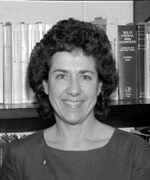
MS #105
Brandeis University
Waltham, MA 02454-9110
Phone: 781-736-2538
Fax: 781-736-2516
E-mail: herzfeld@brandeis.edu
Web: http://www.brandeis.edu/~herzfeld
- The Subversiveness of Asking "Why?": Social Implications of Neuro-determinism (P)
- Sensors and Pumps: Molecular Mechanisms of Retinal-Based Signal and Energy Transducers (G)
- Pumping Ions: NMR Studies of Solar Energy Transduction in the Bacteriorhodopsin Photocycle (S)
- Crowding Induced Order: From Liquid Crystals to Cell Biology (G)
Judith Herzfeld is professor of biophysical chemistry at Brandeis University. Her research group uses solid state NMR to study microbial proteins involved in light-driven ion-transport and gas vesicle formation, and statistical thermodynamics to study spontaneous order in crowded solutions including self-assembling systems found in biological cells. Herzfeld is also interested in the social implications of neuro-determinism and in methods for improving chemical education. Initially attracted to science by the post-Sputnik science programs of the New York City public schools, Herzfeld received her B.A. in chemistry from Barnard College, her Ph.D. in chemical physics from the Massachusetts Institute of Technology and her M.P.P. from Harvard University’s Kennedy School of Government. She is a recipient of the NSF Faculty Award for Women Scientists and Engineers.
David Hoagland
University of Massachussetts–Amherst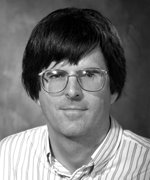
Department of Polymer Science and Engineering
University of Massachusetts Amherst
Amherst, MA 01003
Phone: 413-577-1513
Fax: 413-577-1510
E-mail: dah@neurotica.pse.umass.edu
Web: http://www.pse.umass.edu/faculty/hoagland.html
- Brown Motion: the Dance of Molecules (P,G)
- Polyelectrolytes: Macromolecules with a Charge (G,S)
- Visualizing Macromolecular Motion in Patterned Arrays (S)
David Hoagland is professor of polymer science and engineering at the University of Massachusetts Amherst. His research centers on structure and dynamics in polymer solutions and gels, a field in which he conducts experiments variously probing the behavior of small solutes (ions, drugs, etc.), polymeric solutes (synthetic polymers, DNA, etc.), and molecules of the medium (solvent, network chains, etc.). In recent projects, Hoagland developed an on-line sensor for harmful ions in water, monitored how aging affects the release of drugs from hydrogels, watched the complex diffusion of flexible DNA molecules in patterned microstructures, and measured how counterions condense onto the backbone of strongly charged polymers.
Zhibing Hu
Department of Physics 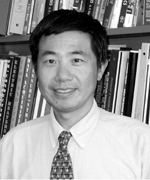
University of North Texas
P.O. Box 31197
Denton, TX 76203
Phone: 940-565-4583
Fax: 940-565-4824
E-mail: zbhu@unt.edu
Web: http://www.phys.unt.edu/faculty/Hu.htm
- Hydrogel Opals (G, S)
- Smart Hydrogels (P)
Zhibing Hu is a professor of physics and an associated member in the departments of chemistry and materials science at the University of North Texas. He received his B.Sc. from Tsinghua University, Beijing, China, and Ph.D. from McMaster University, Hamilton, Canada. He was a postdoctoral research fellow at the Massachusetts Institute of Technology and has been a visiting professor at the University of Texas Southwestern Medical Center at Dallas. His research interests include the study of physical and chemical properties of polymer gels and related biomaterials, self-assembling and phase behavior of colloidal systems, polymer chemistry and physics, light scattering characterization, synthesis and application of nano-structured hydrogels for controlled drug release. He has received the Distinguished Physics Teaching Award and the UNT Developing Scholars Award.
Ted Labuza
University of Minnesota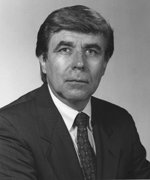
Department of Food Science and Nutrition
136A ABLMS
1354 Eckles Avenue
St. Paul, MN 55108
Phone: 612-624-9701
Fax: 612-625-5272
E-mail: tplabuza@umn.edu
Web: http://www.fsci.umn.edu/Ted_Labuza/tpl.html
- Bioterrorism and the Food Chain: What Should We Be Doing (P)
- The History of Military Feeding (P)
- Before Equilibria Diagrams: Application of Glass Transition (DSC) and Xray Diffraction to Evaluate Structural Changes of Food Systems in Storage (Cotton Candy, Soft Cookies and Sugar Snap Cookies) (G)
- The Crystallization of Sugars in Foods, Drugs and Biologics. (S)
- The Physics and Chemistry of Water in Foods (G)
Ted Labuza is professor of food science and engineering and a Morse Alumni Distinguished Teaching Faculty member at the University of Minnesota. Labuza taught at MIT before coming to the University of Minnesota. He is an author of over 231 research articles, 16 textbooks including a new one on functional foods, 67 book chapters, seven patents and almost 100 other technical/popular articles concerning food processing food safety, food law and nutrition/functional foods.
National Academy of Sciences—Sigma Xi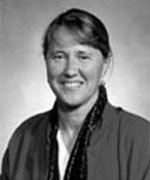 Distinguished Lecturer in Sustainable Economic Development
Distinguished Lecturer in Sustainable Economic Development
Andrea Larson
University of Virginia
The Darden Graduate School of Business Administration
100 Darden Boulevard
Charlottesville, VA 22903
Phone: 434-924-3221
E-mail: larsona@darden.virginia.edu
Web: http://www.darden.edu/faculty/Larson.htm
- Schumpeterian Innovation, Entrepreneurship and the Emergence of Sustainable Business (P,G)
- The Changing Face of Environmental Issues and the Sustainability Challenge to Business (P,G)
- How Should We Think About Environmental Issues and the Role of Business in the 21st Century? (P,G)
Andrea Larson teaches at the University of Virginia in the MBA program and in executive education in the areas of entrepreneurship, strategy, innovation and sustainable business. Sustainable business initiatives integrate economic, social and environmental concerns into a firm’s operations and strategy. This approach is also called “triple bottom line.” Building upon earlier research on entrepreneurship, alliances and network organizations, her current research, teaching and curriculum development focuses on sustainable innovation as a strategic and competitive advantage.
Heather McKillop
Department of Geography and Anthropology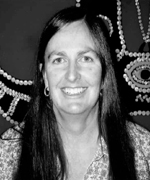
227 Howe-Russell Geoscience
Louisiana State University
Baton Rouge, LA 70803
Phone: 225-579-6178
Fax: 225-578-4420
E-mail: hmckill@lsu.edu
- Sea Level Rise and Ancient Maya Civilization (P,G)
- Salt: White Gold of the Ancient Maya (G,P)
- Ancient Maya Sea Traders (S)
Heather McKillop is William G. Haag Professor of Archaeology in the department of geography and anthropology at Louisiana State University. She received her Ph.D. from the University of California-Santa Barbara. Since 1979, she has carried out an active program of field survey and excavation on the ancient Maya of the mangrove coast and offshore islands of Belize, Central America. Her interests are in the importance of sea trade and the exploitation and production of maritime resources, such as salt, seafood and stingray spines in the development of Maya civilization, as well as the ancient Maya responses to rising sea level. In addition to publishing many articles, she is the author of Salt: White Gold of the Ancient Maya (2002), on her underwater excavations of salt works, and served as co-editor of Coastal Maya Trade(1989).
National Academy of Engineering-Sigma Xi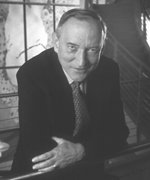 Lecturer
Lecturer
Robert Nerem
Georgia Institute of Technology
Parker H. Petit Institute for Bioengineering and Biosciences
315 Ferst Drive
Atlanta, GA 30332-0363
Phone: 404-894-2768
Fax: 404-894-2291
E-mail: robert.nerem@ibb.gatech.edu
- Tissue Engineering; Confronting the Transplant Crisis (P)
- Tissue Engineering: The Science, The Technology, The Industry (P or G)
- Cardiovascular Tissue Engineering (S)
Nerem joined Georgia Tech in 1987 as the Parker H. Petit Distinguished Chair for Engineering in Medicine. He currently serves as the director of the Parker H. Petit Institute for Bioengineering and Bioscience. In addition he serves as the director of the Georgia Tech/Emory Center (GTEC) for the Engineering of Living Tissues, an NSF-funded Engineering Research Center, and he is a part-time ssenior advisor for bioengineering in the new National Institute for Biomedical Imaging and Bioengineering at the National Institutes of Health. He received his Ph.D. in 1964 from Ohio State University, and prior to joining Georgia Tech, Nerem was on the faculty at Ohio State University for 15 years and from 1979 to 1986 at the University of Houston. Nerem is the author of more than 125 refereed articles.
Gordon Orians
University of Washington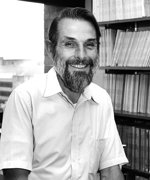
Department of Zoology
Box 351800
Seattle, WA 98195
Phone: 206-364-5743
Fax: 206-368-3296
E-mail: blackbrd@u.washington.edu
- Industrial Development and Alaska’s North Slope Environment (P)
- Environmental Esthetics; Is Beauty Only In the Mind of the Beholder? (G)
- Bird Brains: Decision-Making by Blackbirds (S)
As a professor of zoology at the University of Washington, Gordon Orians has focused his work primarily on problems of habitat selection, mate selection and mating systems, selection of prey and foraging patches (foraging theory) and the relationships between ecology and social organization. Primary subjects of study have been blackbirds of the Family Icteridae, a group of birds noted for the diversity of their social systems. Orians is a member of the National Academy of Sciences and the American Academy of Arts and Sciences. His honors include the Eminent Ecologists Award from the Ecological Society of America and the Distinguished Service Award from the American Institute of Biological Sciences.
Talat Rahman
Kansas State University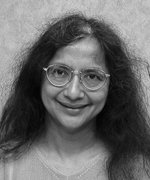
Department of Physics
325 Cardwell Hall
Kansas State University
Manhattan, KS 66506
Phone: 785-532-1611
Fax: 785-532-6806
E-mail: rahman@phys.ksu.edu
Web: www.phys.ksu.edu/~rahman
- Promises of Nanoscience and Nanotechnology: Fact or Fiction? (P)
- Should We Tell our Daughters to Become Scientists? (P)
- When Gold is No Longer Gold: On Tailoring Properties of Materials. (G)
- On Poisons and Promoters: Controlling Catalytic Activity Through Nanostructuring (S)
- Steps, Kinks and Other Defects Making the Difference at the Nanoscale (G)
- Shapes, Sizes and Dynamics of Things as They Grow: Multiscale Studies of Thin Film Growth
Talat Shahnaz Rahman is a University Distinguished Professor of Physics at Kansas State University. She is a recipient of a number of awards, including the Alexander von Humboldt Forschungspreis from Germany and the Olin Petefish Award from the University of Kansas. She is also a fellow of the American Physical Society. She continues to serve as a coordinator of the International Nathiagali Summer College held annually in Pakistan. Rahman’s research is in understanding the physical and chemical properties of metal surfaces and nanostructures. She and her group use a combination of theoretical and computational techniques to understand processes like thin film growth, chemisorption, nano-structuring of materials, atomic manipulation and nanotribology, and structural transitions at surfaces.
Melvin R. Ramey
Department of Civil & Environmental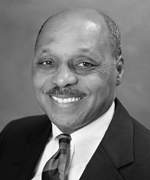 Engineering
Engineering
University of California at Davis
1 Shields Avenue, Davis, CA 95616
Phone: 530-752-0896
E-mail: mrramey@ucdavis.edu
Web: http://cee.engr.ucdavis.edu/faculty/ramey/
- Moving Forward: Force Relationships of the Long Jump and Triple Jump in Track and Field (P)
- The Dynamics of the Long Jump and Triple Jump in Track and Field (G)
- The Design of the Long Jump in Track and Field (S)
Melvin Ramey is professor of civil and environmental engineering at the University of California at Davis. He received his Ph.D. from Carnegie Mellon University. An award-winning teacher, Ramey performs research in the areas of structural design (including computer-aided design), structural testing, fiber reinforced concrete and biomechanics. His work in computer-aided design is directed toward interactive design methodologies. He has conducted tests on timber-concrete composite beams, fiber reinforced concrete seismic joints, prestressed concrete anchorages, bridge pile extensions and other structural members. His work has included an assessment of prison construction in California. His work in biomechanics focuses on human jumping and rehabilitation. Recent work has emphasized the incorporation of engineering design methodologies for improving human movement, especially jumping.
Gregory H. Robinson
Department of Chemistry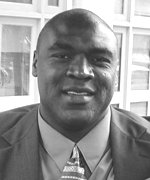
Chemistry Bldg. Rm. 504
University of Georgia
Athens, GA, 30602-2556
Phone: 706-542-1853
Fax: 706-542-9454
E-mail: robinson@chem.uga.edu
Web: http://www.chem.uga.edu/faculty/robinson.html
- Metalloaromaticity: Bridging the Gap Between Organic Chemistry and Inorganic Chemistry (G, S)
- Gallium-Gallium Triple Bonds: Multiple Bonds Involving the Heavier Main Group Elements (G, S)
- Gallane, Gallenes and Gallynes: Dynamics About the Ga-Ga Bonds (G, S)
Gregory Robinson was educated in Alabama, receiving his B.S. from Jacksonville State University and his Ph.D. from the University of Alabama. Before joining the University of Georgia faculty in 1995, he was a professor at Clemson University. He was an Alexander von Humboldt Research Fellow at the Technische Universitat Berlin in 1994. His research interests concern the organometallic chemistry of the main group elements. Historically somewhat overshadowed by the organometallic chemistry of the transition metals, the organometallic chemistry of the main group elements is now experiencing great activity. In large part this is driven by the quest for single source molecular precursors for advanced inorganic/electronic materials. His research group has developed new synthetic strategies resulting in the preparation of a number of interesting gallium-phosphorus compounds, phosphinogallanes, and indium-phosphorus compounds, phosphinoindanes, which have been shown to be attractive molecular precursor templates.
American Meteorological Society-
Sigma Xi Lecturer
Mark R. Schoeberl
National Aeronautics and Space Administration
Chief Scientist, Earth Sciences Directorate
NASA/GSFC, Code 916
Greenbelt, MD 20771
Phone: 301-614-6002
Fax: 301-614-5903
E-mail:
Mark.R.Schoeberl@nasa.gov
Web:
http://hyperion.gsfc.nasa.gov/People/Schoeberl/
- Beyond the Horizon: Future NASA Atmospheric Science Missions (G)
- What’s Happening With the Ozone Layer? (G)
- It’s All One Atmosphere: Long Range Pollution Transport (G)
Mark Schoeberl is an atmospheric scientist who specializes in stratospheric processes, including wave dynamics, ozone depletion and trace gas transport. He has over 154 refereed publications and over 4,200 citations in refereed atmospheric science journals. Since the early 1980s he has worked at NASA Goddard Space Flight Center, and is currently the chief scientist for the Earth Sciences Directorate and the EOS Aura Satellite Project Scientist. Schoeberl is past President of the Atmospheric Sciences Section of the American Geophysical Union (AGU). He is the former Upper Atmospheric Research Satellite (UARS) Project Scientist. He was the co-project scientist for the airborne VOTE/TOTE mission (1996) and was Co-Project Scientist for the airborne SOLVE I and II missions (2000, 2002). He is also a past member of the National Academy’s Board of Atmospheric Sciences.
Richard J. Shavelson
School of Education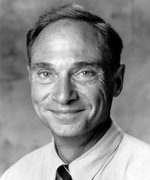
Stanford University
485 Lasuen Mall
Stanford, CA 94305-3096
Phone: 650-723-4040
Fax: 650-725-7443
E-mail: richs@stanford.edu
Web: http://www.stanford.edu/dept/SUSE/SEAL/
- On What We're Measuring and Not Measuring in Science Achievement: Consequences for Teaching and Learning (P)
- On a Conceptual Framework for Science Achievement and Corresponding Empirical Support (G)
- Research on the Validity of a Conceptual Framework for Science Achievement (S)
Rich Shavelson is professor and former dean of education and (by courtesy) professor of psychology at Stanford University. His research is in social science measurement and evaluation methods, psychometrics and related policy and practice issues. He works closely with teachers and scientists in the development of performance and other assessments in science education, and their evaluation along psychometric, cost, classroom use and social impact lines. His policy work focuses on assessment of learning in higher education, and the quest for accountability. Co-author with Noreen Webb of the book, Generalizability Theory: A Primer, Shavelson’s other psychometric publications include research on the dependability of performance assessments used in work and education.
Robert Shepard
Science and Engineering Alliance, Inc.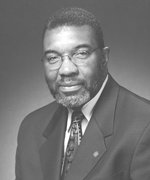
1522 K Street NW, Suite 210
Washington, DC 20005
Phone: 202-842-0388
Fax: 292-842-0403
E-mail: shepard@sea2.org
Web: www.sea2.org
- In Search of the Influential Scientist (P,G)
- Historically Black Colleges and Universities (HBCUs): Myths and Misunderstandings (P,G)
Robert L. Shepard is founding executive director of the Science and Engineering Alliance, Inc. (SEA), a consortium of historically black colleges and universities that collectively work to create opportunities for greater access to the federal research and development enterprise. A chemist, he has held research and management positions at Celanese, the U.S. Naval Research Laboratory and U.S. Nuclear Regulatory Commission.
Paul Sherman
Cornell University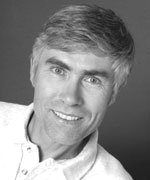
W307 Mudd Hall
Cornell University
42 Sparrow Crest
Ithaca, NY 14850
Phone: 607-254-4333
Fax: 607-254-4308
E-mail: pws6@cornell.edu
- Darwinian Medicine: A New Approach to Health and Disease (P)
- Why We Use Spices (G)
- Protecting Ourselves from Food (S)
Paul W. Sherman is a professor of biology at Cornell, where he has been since 1981. He earned his B.A. at Stanford, his Ph.D. at Michigan, and was a Miller Postdoctoral Fellow at Berkeley, a Guggenheim Fellow at Michigan and an Astor Lecturer at Oxford. Sherman studies the social and reproductive behavior of vertebrates, particularly mammals. He has authored 170 publications on such topics as nepotism, kin recognition, eusociality, parasitism, mate choice, demography, conservation biology and evolutionary medicine. At Cornell, Sherman teaches animal behavior, behavioral ecology and Darwinian medicine. He has sponsored seven postdoctoral fellows, 25 graduate students and 26 undergraduate honors students. He has lectured at more than 150 symposia and academic institutions worldwide.
Rashmi Sinha
National Cancer Institute
Nutritional Epidemiology Branch
Division of Cancer Epidemiology and Genetics
6120 Executive Blvd
EPS 7000, Room 3046
Bethesda, MD 20892-7273
Phone: 301-496 6426
Fax: 301-496-6829
E-mail: sinhar@exchange.nih.gov
- Meat, Meat-Cooking Carcinogen and Cancer (G)
- Diet and Cancer (P)
- Diet and Chronic Disease Studies in Developing Countries (G)
Rashmi Sinha is an investigator in the Nutrition Epidemiology Branch, Division of Caner Epidemiology and Genetics, at the National Cancer Institute. Research interests include the role of meat, heterocyclic aromatic amines and polycyclic aromatic hydrocarbons in cancer etiology as well as the interaction of genetic susceptibility and nutrition in cancer. Other interests include vitamins A, C and E and cancer, DDT and breast cancer and development of biomarkers of diet. Sinha’s honors include the National Institute of Health Award of Merit and the Technology Transfer Award. Sinha is associate editor of the journal Cancer Epidemiology, Biomarkers and Prevention, a reviewer for numerous journals and has served on a variety of professional committees and boards.
Brian Strom
University of Pennsylvania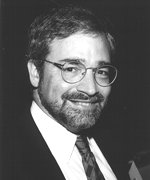
Chair, Department of Biostatics and Epidemiology
824 Blokley Hall
423 Guardian Drive
Philadelphia, PA 19104-6021
Phone: 215-898-2368
Fax: 215-573-5315
E-mail: bstrom@cceb.med.upenn.edu
- Implementation of Smallpox Vaccination Plan (P)
- Improving Patient Safety by Reducing Medication Error (G)
- What are Our Drugs Truly Doing to Our Patients? Lessons from Pharmacoepidemology (G)
Brian Strom is George S. Pepper Professor of Public Health and Medicine, chair and professor of biostatistics & epidemiology, professor of medicine and pharmacology and director of the Center for Clinical Epidemiology and Biostatistics (which he created), all at the University of Pennsylvania School of Medicine. His major research interest is in the field of pharmaoepidemilogy, i.e., the application of epidemiologic methods to the study of drug use and effects. Author and editor of the field’s major text, Strom is a past-president of the International Society of Pharmacoepidemiology. He is a member of the Institute of Medicine of the National Academy of Sciences and chairs its Committee on Smallpox Vaccine Program Implementation. Strom is one of a handful of clinical epidemiologists ever elected to the American Society of Clinical Investigation and the American Association of Physicians.
Valeria E. Taylor
Department of Computer Science
Texas A&M University
H.R. Bright Building, Room 305B
College Station, TX 77843-3112
Phone: 979-845-5820
Fax: 979-845-1420
E-mail: taylor@cs.tamu.edu
Web: http://www.cs.tamu.edu/people/faculty/taylor
- Using One, Two, Three,…Thousands of Computers (P)
- Parallel Computers: Past, Present and Future (G)
- Performance Analysis of Parallel and Distributed Applications (S)
Valerie Taylor received her B.A. and M.S. degrees in electrical engineering from Purdue University and her Ph.D. in electrical engineering and computer sciences from the University of California at Berkeley. Her research areas include performance of parallel scientific applications, computer architecture and visual supercomputing environments. Specifically, she’s interested in development of techniques for systematically analyzing and improving application performance in the context of parallel and distributed scientific applications, visual supercomputing environments and distributed systems. Taylor is the recipient of a National Science Foundation Young Investigator Award, the IEEE Educational Society Harriet B. Rigas Award and the Computing Research Association’s A. Nico Habermann Award.
Kimberly M. Thompson
Society for Risk Analysis/Sigma Xi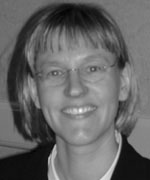 Distinguished Lecturer
Distinguished Lecturer
Harvard School of Public Health and Children's Hospital Boston, Harvard Medical School
677 Huntington Ave., 3rd Floor
Boston, MA 02115
Phone: 617-432-4285
Fax: 617-432-3699
E-mail: kimt@hsph.harvard.edu
- Life in the Age of Risk Management (P or G)
- Risk Management and Communication Meet Uncertainty and Variability (S or G)
- Managing Children's Risks: It Takes a Commitment (G)
Dr. Kimberly Thompson is Associate Professor of Risk Analysis and Decision Science at the Harvard School of Public Health, where she created and directs the Kids Risk Project. Professor Thompson is a nationally and internationally known as an expert on children's risks and on probabilistic risk analysis. Her research interests and teaching focus on the issues related to developing and applying quantitative methods for risk assessment and risk management, and consideration of the public policy implications and communication challenges associated with including uncertainty and variability in risk characterization. Drawing on a diverse background, she seeks to effectively integrate technological, social, political, legal, and economic issues into risk analyses that inform public policy and improve decision making in what she calls the Age of Risk Management (www.aorm.com). A popular and engaging speaker, Professor Thompson talks about the serious topic of "Life in the Age of Risk Management" using humor and real life examples that are relevant to broad audiences. She demonstrates the hazards of failing to consider the real differences between individuals that matter when making public policy decisions, and she talks about how to become empowered by uncertainty, instead of paralyzed by it. As director of the Kids Risk Project (www.kidsrisk.com), Dr. Thompson is a leading authority on the risks to children and the need for better information to improve decisions made by kids, parents, policy makers, and others. Professor Thompson is co-Founder and Director of Research of the Center for Media and Child Health at the Children's Hospital in Boston, and she performs active research on the messages in popular media (e.g., motion pictures and video games). Dr. Thompson earned her Doctor of Science Degree in Environmental Health at Harvard and her Bachelor and Master of Science Degrees in Chemical Engineering from M.I.T. She is author of Humor in the Age of Risk Management (AORM, 2003) and Overkill: How Our Nation's Abuse of Antibiotics and Other Germ Killers Is Hurting Your Health and What You Can Do About It (with Debra Bruce, Rodale, 2002), and her work has been widely covered in popular media.
Martin Wachs
University of California–Berkeley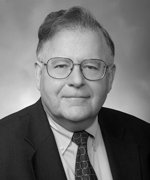
Director, Institute of Transportation Studies
109 McLaughlin Hall
Berkeley, CA 94720-1720
Phone: 510-642-3585
Fax: 510-643-3955
E-mail: mwachs@uclink4.berkeley.edu
- Twelve Reasons to Raise the Gas Tax (P)
- Learning to Understand Traffic Congestion and How to Reduce It (G)
- Ethical Dilemmas in Forecasting for Public Policy (P,G,S)
Martin Wachs is director of the Institute of Transportation Studies at the University of California, Berkeley, where he is the Roy W. Carlson Distinguished Professor of Civil & Environmental Engineering and professor of city and regional planning. He earlier spent 25 years at UCLA, where he served three terms as chairman of the department of Urban Planning. Wachs is the author of 150 articles and four books on subjects related to relationships between transportation, land use, and air quality, transportation needs of the elderly, techniques for the evaluation of transportation systems and the use of performance measurement in transportation planning. His research also addresses issues of equity in transportation policy, problems of crime in public transit systems, and the response of transportation systems to natural disasters including earthquakes. His most recent work focuses on transportation finance in relation to planning and policy. Wachs has served on the Executive Committee of the Transportation Research Board for nine years and was the TRB chairman during the year 2000.
Isiah M. Warner
434 Choppin Hall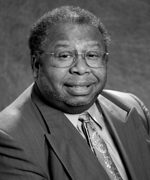
Department of Chemistry
Louisiana State University
Baton Rouge, LA 70803
Phone: 225-578-2829
Fax Number: 225-578-3971
E-mail: iwarner@lsu.edu
Web:http://chemistry.lsu.edu/chem/facultypages/
warner/warner.asp
- Mentoring: A Novel Method for Battering Brick Walls (P)
- Chiral Drugs: The Jekyl/Hyde Behavior of These Molecules in Biological Systems (G)
- Mixing Chromatography and Spectroscopy to Achieve Chiral Recognition With Molecular Micelles (S)
Isiah Warner is Boyd Professor and Philip W. West Professor of Analytical and Environmental Chemistry at LSU. Warner's research focuses on molecular spectroscopy and separation science. He has published more than 200 peer reviewed manuscripts, several book chapters and has co-edited two books. He has won numerous awards for his research, teaching and mentoring, including the 1997 Presidential Award for Excellence in Science, Mathematics and Engineering Mentoring. This year he became one of the first Howard Hughes Medical Institute professors, a new initiative to support undergraduate science education. Warner will use the $1 million award that comes with it to focus on mentoring minorities.
Martha Zúñiga
University of California–Santa Cruz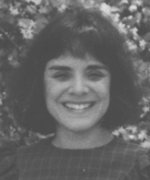
Department of Molecular, Cell, and Developmental Biology
221 Sinsheimer Labs
Santa Cruz, CA 95064
Phone: 831-459-3180
Fax: 831-459-3139
E-mail: zuniga@darwin.ucsc.edu
Web: http://biomedical.ucsc.edu/Zuniga.html
- The Adventures of an Itinerant Class I MHC Molecule: Negotiating the Membrane Skeleton (S)
- Lessons in Détente or Know thy Host: The Immunomodulatory Gene Products of Myxoma Virus (G)
- Histocompatibility Molecules: Matchmakers in Matters of Love and Immunity (G, P)
- From 1930’s Berlin to 21st Century University Campuses: The Story of the Remarkable Molecules that Regulate Immune Responses (P)
Martha Zúñiga received a B.A. from the University of Texas at Austin and M.Phil. and Ph.D. degrees from Yale University and postdoctoral training at the Yale University School of Medicine and at Caltech. Presently she is professor of molecular, cell, and developmental biology at the University of California, Santa Cruz. Her research focuses on the role of the structure expression of class I major histocompatibility molecules and its tissue-specific in regulating immune responsiveness versus tolerance. Current research projects are directed at elucidating mechanisms by which immunological tolerance is established and maintained and how virally infected cells and cancer cells subvert otherwise protective immune responses. Zúñiga was a recipient of the Presidential Young Investigator Award in 1989. Other lectures available.